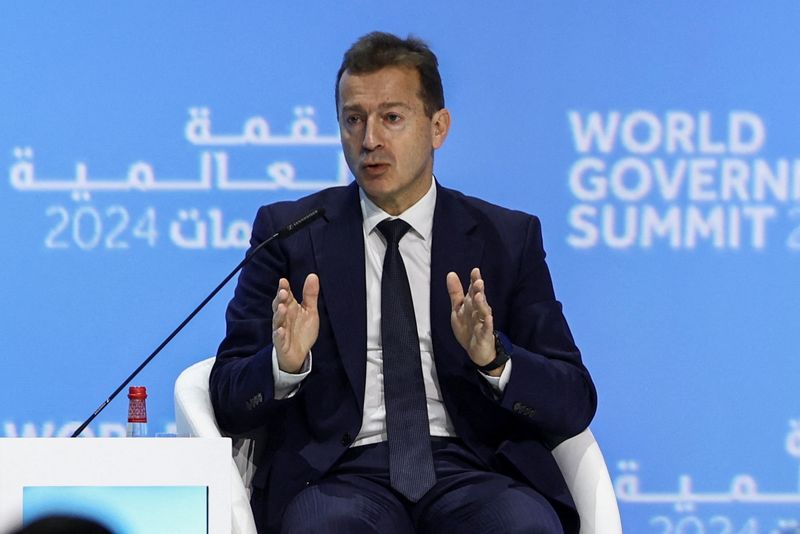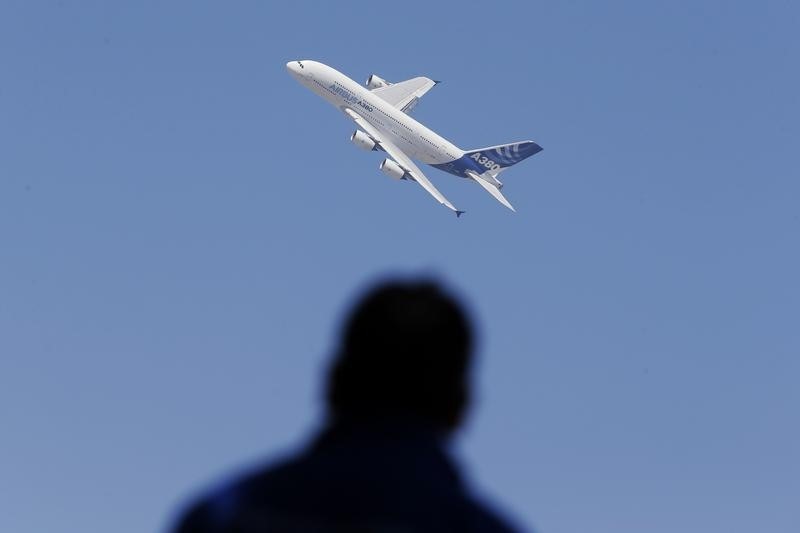By Tim Hepher
BRUSSELS (Reuters) – Airbus CEO Guillaume Faury expressed growing confidence on Tuesday over engine deliveries that have hampered jet aircraft deliveries. He told Reuters that CFM International should be able to supply enough units, but that this would be “very tight”.
A supply shortage from the world ‘s largest engine manufacturer in units sold, co-owned by GE Aerospace and Safran (EPA:), is blamed in part for slow Airbus jet deliveries and contributed to a reduction in annual targets in July.
Airbus faces the challenge of delivering some 200 jets in the past two months to reach the target of ‘approximately’ 770 jets by 2024 – a task that some analysts say is looking increasingly unattainable.
Asked whether he believed CFM could release enough engines to Airbus to support the planemaker’s end-of-year targets, Faury said: “In the short term it’s very tight … I won’t know for sure until the end of November.” .
He added: “It should be OK; I don’t know yet. It will be within a few engines – not dozens of engines – if there are any.”
CFM had no immediate comment.
The comments from the head of the world’s largest aircraft maker – while carefully calibrated – convey a more relaxed tone on engine deliveries since the summer and follow behind-the-scenes negotiations over allocations, according to industry sources.
Founded 50 years ago, CFM is one of two suppliers for the narrowbody A320neo family, Airbus’ best-selling aircraft, which competes with RTX unit Pratt & Whitney. It is also the sole engine supplier for the Boeing (NYSE:) 737 MAX.
Like other engine manufacturers, CFM has had to juggle competing demands for engines to produce new jet aircraft and the global repair shops that keep existing aircraft in service, while also dealing with problems at a key supplier.
The battle led to visible tensions between Airbus and the industry’s largest engine supplier last summer, when Airbus cut its 2024 delivery target from 800 to “around” 770 aircraft, citing supply problems at CFM and other parts manufacturers.
In July, Faury said he had been “blindsided” by CFM.
CONCILIATIVE NOTE
But speaking to Reuters on the sidelines of an industry event in Brussels on Tuesday, Faury struck a conciliatory note, saying things had not been made easier by recent hurricane damage in the US, on top of industrial challenges.
“They (CFM) are serving us quite well given these circumstances,” he said.
Such comments are scrutinized around this time of year to gauge aircraft makers’ confidence in their targets. Analysts warn that supply chains remain unpredictable and could cause surprises in the supply of other parts.
Airbus delivered 62 aircraft in October, bringing the total in the first ten months of the year to 559.
Some analysts have warned that Airbus could have to lower its expectations again by the end of November if the situation does not improve. Airbus is widely expected to benefit from the flexibility in the formulation of its target to justify deliveries of 750 units or more without implementing a formal new downgrade.

Airbus, which is surpassing Boeing as its US rival slowly emerges from an internal crisis, is counting on supplies of engines and other parts such as seats and landing gear to achieve a last-minute surge in deliveries this year.
But analysts say this is happening with a supply chain weakened by the pandemic and numerous labor and parts shortages.


